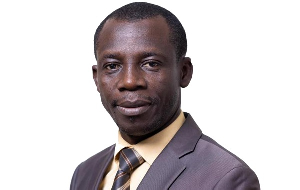The Public Interest and Accountability Committee (PIAC) is urging the government to channel petroleum revenues into long-term infrastructure development and economic diversification as a strategy to reduce Ghana’s future reliance on oil and gas.
According to PIAC’s Technical Coordinator, Isaac Dwamena, such investments are crucial to building a more resilient and sustainable economy.
He emphasised that industrialisation and economic diversification offer more stable development pathways than continued dependence on oil revenues.
In an interview with GhanaWeb Business, Dwamena acknowledged Ghana’s commitment to its energy transition agenda but stressed the importance of responsibly exploiting natural resources in the short term to finance future growth.
“We have a national energy transition plan and all that, but let’s also understand that Ghana must exploit its resources to generate revenue. That revenue should then be used to build infrastructure and develop other sectors of the economy, so that we become less and less dependent on oil and gas,” he stated.
He reiterated PIAC’s long-standing position that the Annual Budget Funding Amount (ABFA), a portion of petroleum revenues allocated to the national budget, should be used strategically to support sectors that deliver lasting value.
“We should use that to build infrastructure that will endure. If it’s roads, let them be roads that last 15 to 20 years, so we’re not using additional resources to rebuild them. If it’s rail, let’s build railways that last 20 to 25 years. If it’s industrialisation, let’s invest in factories that create jobs and harness the energies of Ghanaians,” he explained.
Dwamena added that using oil revenues in this manner will gradually reduce the country’s overreliance on petroleum, ensuring a smoother transition to a more diversified and robust economy.
SP/MA
Watch the latest edition of BizTech below:



